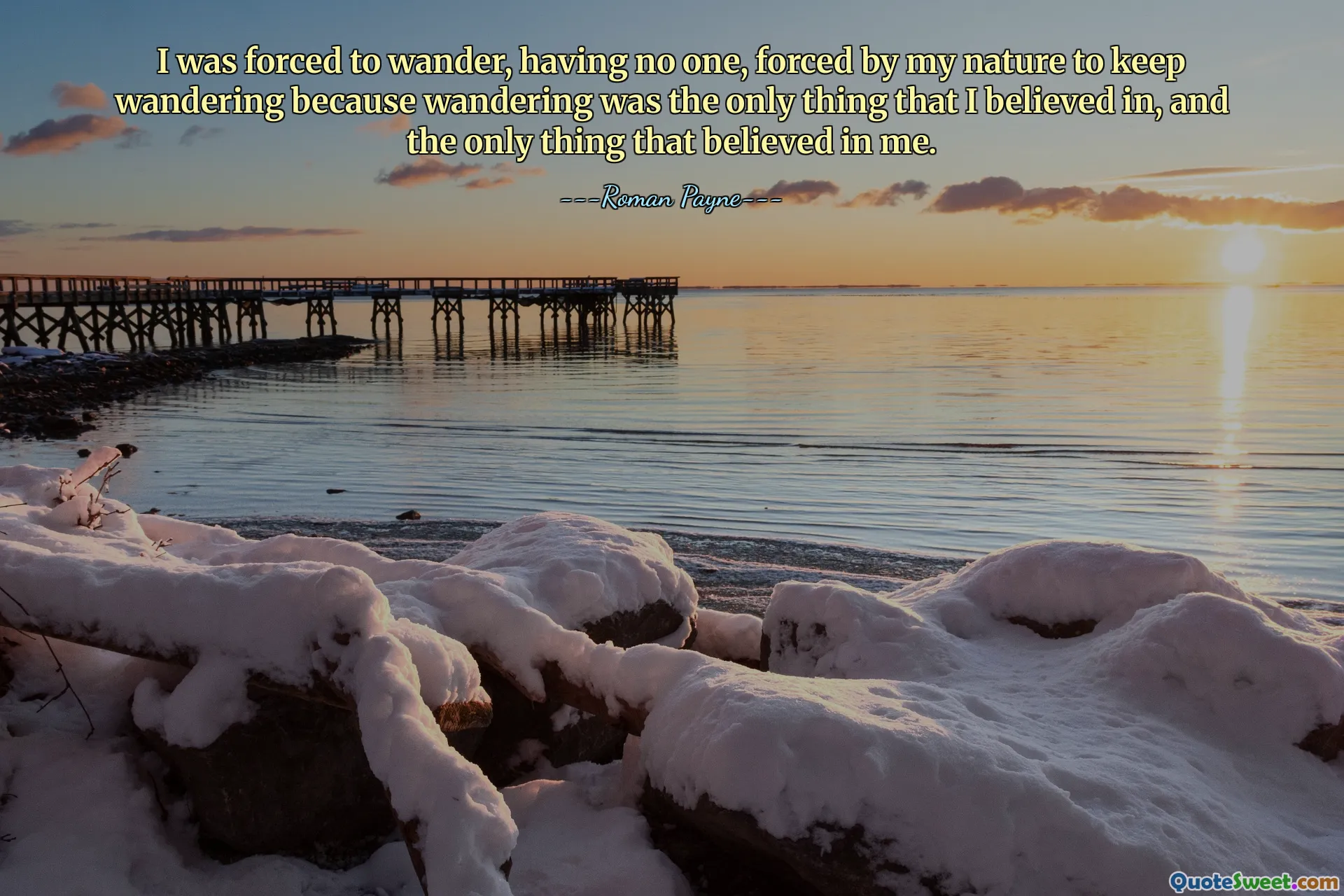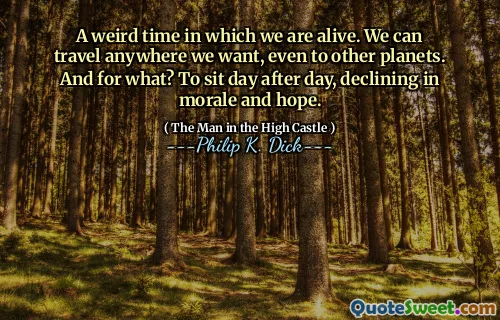
I was forced to wander, having no one, forced by my nature to keep wandering because wandering was the only thing that I believed in, and the only thing that believed in me.
This quote vividly encapsulates a profound sense of existential solitude and the unwavering pursuit of personal truth through continuous wandering. The speaker's depiction of being 'forced' to roam without companionship suggests an internal compulsion rather than external circumstance, highlighting a deep-rooted necessity to explore and seek meaning beyond traditional confines of stability. There is an acknowledgment that their very nature is aligned with perpetual movement and search, making wandering not just a physical act but a symbolic journey of self-discovery and existential affirmation. Such a perspective resonates with the human condition, where many individuals encounter periods of loneliess and uncertainty, yet find in these moments an authentic expression of their core self. The idea that wandering is the only thing they believe in, and vice versa, reflects a mutual dependency—an affirmation that their identity and beliefs are intertwined with this ceaseless voyage. It also hints at a rejection of settledness or conformity, embracing instead a fluid existence guided by internal convictions. While solitude can often be viewed as a deficiency, the quote suggests it can also be a space for profound connection with one's own essence. Ultimately, it inspires a reflection on how perseverance in personal pursuits, even if solitary, can be a source of meaning and self-understanding in a complex and often unpredictable world.







